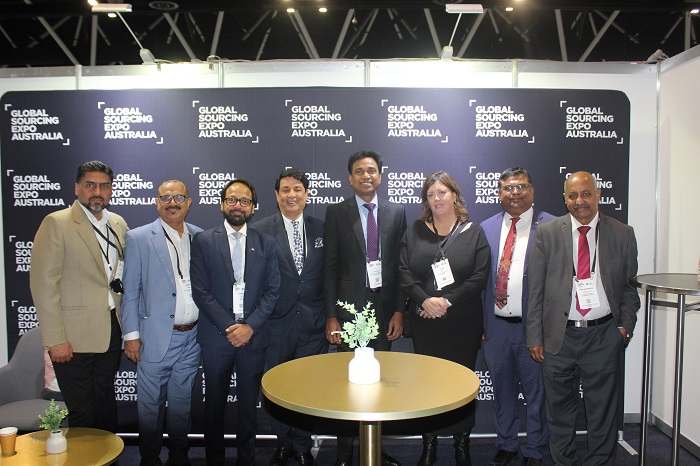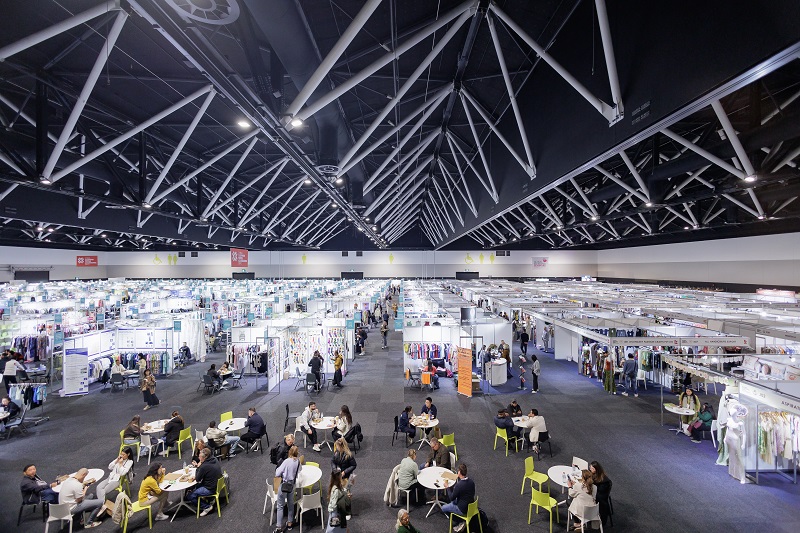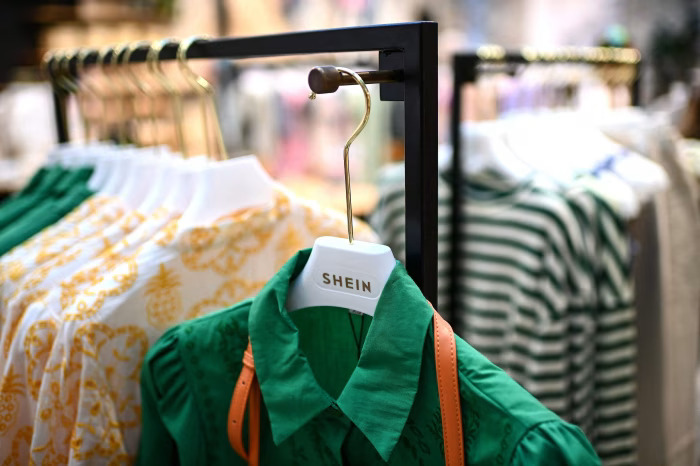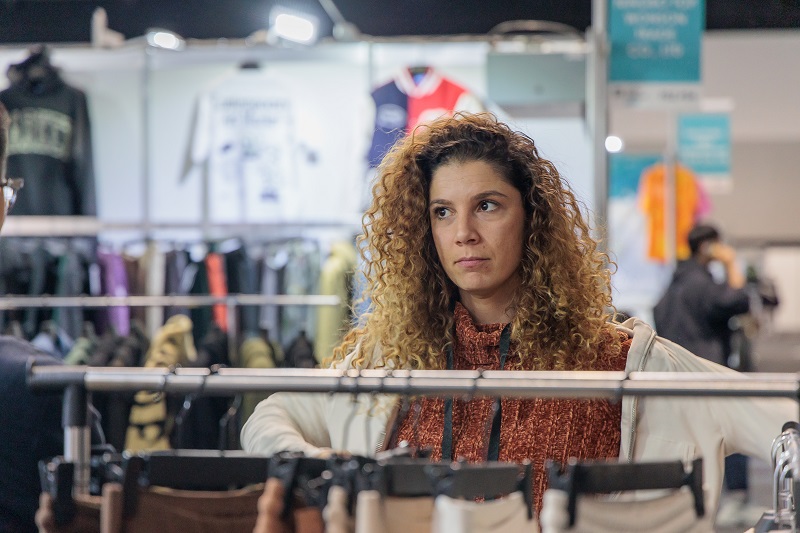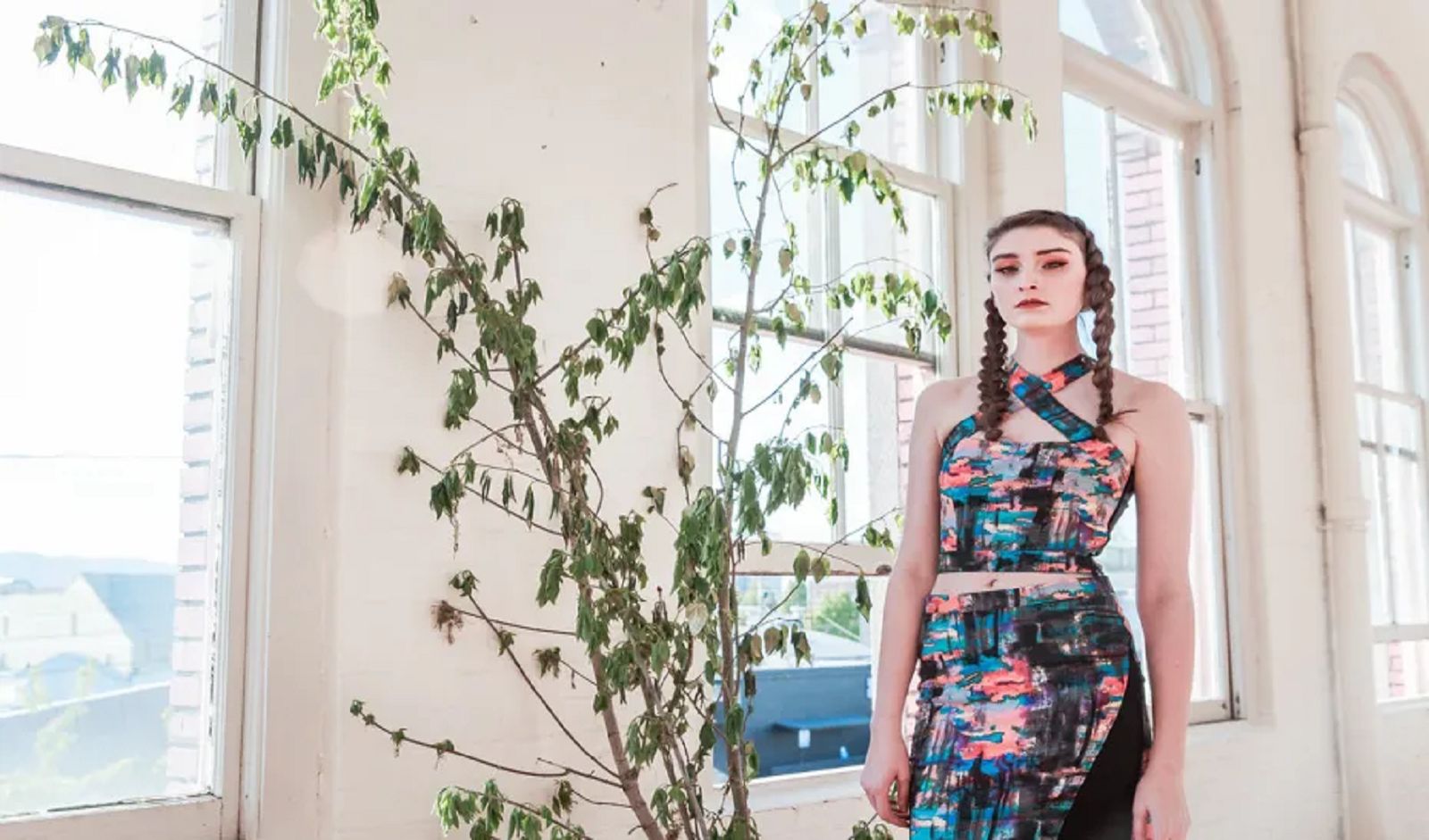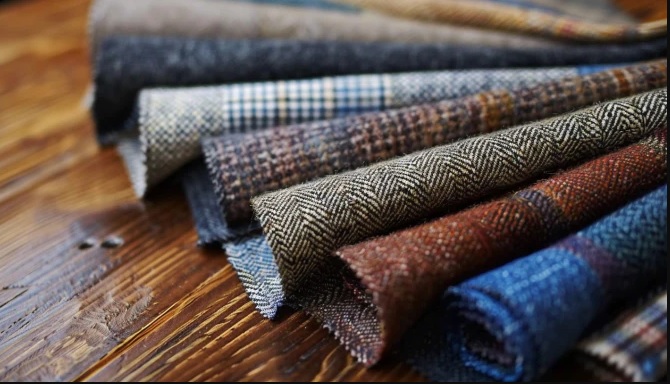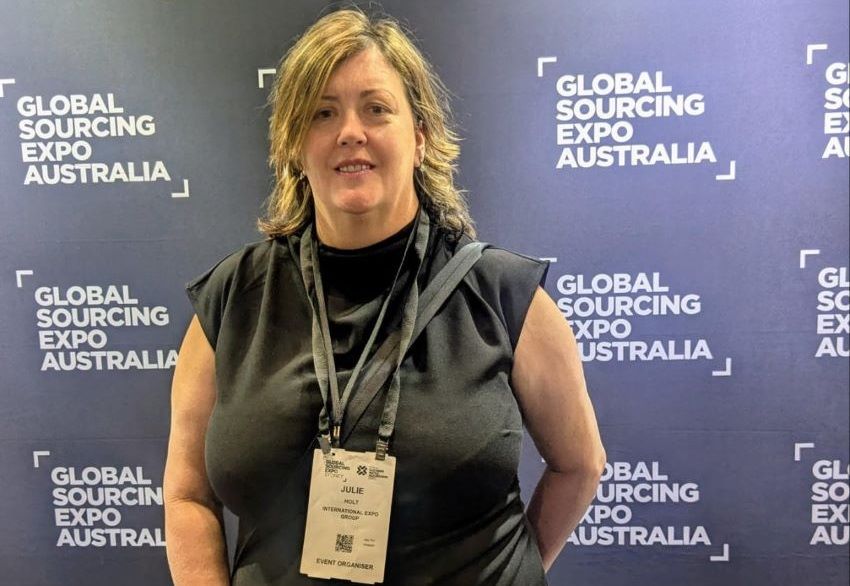FW
Yarnex will be held in New Delhi, July 21 to 23, 2016.This is India’s leading event for fibers and yarns. It brings together manufacturers and suppliers of fibers, yarns and related services.
The exhibition serves the sourcing requirements of the textile value chain in the north, east and central markets of the country.
Yarnex was launched in Tirupur in 2009. This edition will welcome decision makers from India and overseas, who represent international buying houses, composite mills, power loom weavers, knitters, distributors and wholesalers, apparel brands, importers, fashion designers and fashion labels.
Major exhibit categories include natural, man-made, specialty and other fibers as well as a variety of yarns, featuring natural and blends, man-made and blends, elastic, fancy and specialty.
The event has now firmly entrenched itself as a prominent brand and an important cog in the sourcing and business networking cycle for the textile value chain. It has attracted leading Indian and international manufacturing companies, who have successfully reached out to their target customers, setting up enduring business linkages.
Yarnex comes to Delhi after the success it has garnered over seven editions in Tirupur. It has established itself as an important international sourcing platform in India.
US cotton demand, including mill use and exports, is expected to increase 12 per cent in 2016-17, as exports are projected to rebound. In 2015-16, the limited supplies—particularly of higher quality cotton—and sharply lower imports by China reduced demand to a 30-year low.
For 2016-17, exports will continue to account for 74 per cent of the total demand. The increase in exports is likely to push US share of global trade in 2016-17 to 32 per cent, up from last season’s 26 per cent, but similar to the share recorded in 2014-15.
However, US cotton mill use for 2016-17 is estimated to remain flat, supported by the continued demand for US cotton textile product exports. With US cotton production expected to exceed demand in 2016-17, ending stocks are projected to increase from the current season. Cotton stocks are forecast at 4.7 million bales on July 31, 2017.
US cotton production is forecast at 14.8 million bales, 15 per cent above the final 2015 estimate. The 2016 cotton area is expected at 9.56 million acres, one million acres above 2015. The higher planted acreage is largely due to a return of the area that was prevented from being planted last season due to wet conditions. In addition, relative prices favor cotton slightly over competing crops.
US cotton harvested area for 2016 is projected at 8.8 million acres, nine per cent above the 2015 estimate of 8.1 million acres.
Resil Chemicals has won a prestigious National Award from the Technology Development Board, Department of Science and Technology, Government of India, for the successful commercialization of an indigenous technology, N9 Pure Silver.
This award recognizes excellence in collaboration, indigenous technology development and commercialization. N9 Pure Silver was featured on BBC Horizons, the flagship science and technology program airing on BBC World News. It was also featured on allied channels across the world.
N9 Pure Silver is an antibacterial and hygiene finish applied on fabrics or garments. It is a revolutionary particulate silver-based technology that, on contact, neutralizes odor-causing bacteria, keeping textiles fresher for longer. This breakthrough technology delivers outstanding odor control performance, combined with impeccable environmental credentials.
Resil Chemicals, based in Bangalore, is a leading exporter, manufacturer and supplier of silicone oils , silicone defoamers, silicone surfactants.
With a focus on sustainability based on advanced technologies for a variety of industrial applications, Resil’s vision is to bring world class technologies to global markets. This is facilitated by the development of patented materials, key collaborations with advanced research facilities and multi-million dollar investments.
It has resulted in a comprehensive product range for textiles, which includes finishing agents, silicone fluids, lubricants, enzymes and organic softeners.
Muhammad Usman, Central Chairman of Pakistan Yarn Merchants Association (PYMA) has urged the Federal Finance Minister to save the downstream textile industry. In a letter to Finance Minister Ishaq Dar, Chairman PYMA pointed out that the local manufacturers of polyester filament yarn can only meet the needs of local downstream industry to the extent of about 25 per cent.
Despite the fact that investigation was currently underway by National Tariff Commission to review anti-dumping duty, the local manufacturers are lobbying very hard to get Regulatory Duty (RD) imposed. Usman said that these attempts by the local manufacturers would put the entire weaving and knitting industry in grave situation, by increasing the cost of their basic raw material (yarn), thus making the entire downstream industry uncompetitive.
They want to create monopoly like situation to give them some short term benefits at the expense of very large downstream sector, which employs millions of people and is the back bone of our economy, Usman added. It is pertinent to note that in 2008 NTC had imposed anti-dumping duties (Max 18 per cent) on the filament yarns originating from Thailand, Malaysia, Korea and Indonesia. At that time there were about 17 local manufacturers of polyester filament yarn and there was no import of polyester yarn from China. Despite of the fact that the anti-dumping duty was levied for over eight years, the number of local manufacturers shrank into four units and their market share decreased.
The long term solution for local manufacturers is to modernise and upgrade their plants and thus enhance capacity to achieve economies of scale. RD is not the right solution, he added.
Pakistan’s textile mills want duty and sales tax exemption on imports of raw and ginned cotton, considering the shortfall in the local cotton output.
The last budget had imposed sales tax at five per cent on the import of raw and ginned cotton. On the other hand, local cotton remained exempt from sales tax.
Pakistan has to import around 25 per cent of its cotton requirement. This is mainly of long staple and contamination-free cotton, which is not available in the country. This cotton is used to manufacture high value yarn and in turn high value added products, which are mainly exported in one form or another.
Due to the crop failure this year, the industry had to import more cotton as compared to the previous year; therefore, it says import of raw cotton should be exempt from duty and tax. Due to the three per cent duty, the cost of production has further increased as the prices of local cotton also increased in tandem with imported cotton prices.
There is also a demand that the duty on import of manmade fibers such as polyester, viscose, acrylic and nylon should be reduced to zero.
The industry consumes around 16 million bales annually, whereas the total production of cotton in Pakistan is around 13 million bales.
Faced with sharp criticism from major biotech companies like Monsanto, India has decided to withdraw the notification issued last week capping the trait value charged by them on new genetically modified (GM) traits.
It was felt that fixing the trait value for new GM traits at 10 per cent of the maximum sale price of Bt cotton seeds for the first five years, and lowering the same by 10 per cent annually thereafter, could undermine R&D for superior GM traits and hit India’s cotton productivity in the medium term.
Innovators in the agri-biotech industry opposed the gazette notification. Besides, the notification nullified the existing seed licenses and proposed execution of new licensing agreements in a new format in 30 days, which seemed to be impractical. It was felt this could lead to a delay in providing Bt cotton seeds to farmers in the next kharif season by the companies because of the short time span.
About 90 per cent of the country’s cotton area of 11.8 million hectares in the 2015-16 season is under Bt cover. Domestic cotton production has risen manifold since the introduction of Bt seeds — from 13.6 million bales in 2002-03 to a projected 30.5 million bales in 2015-16.
The IAF together with the Clothing Manufacturers Association of India is hosting the 32nd IAF World Fashion Convention in Mumbai (India) on September 27-28, 2016. The theme for this Convention is ‘Insights into New Opportunities’.
The Mumbai Convention will cover a broad range of global strategic issues such as Sourcing, Retailing, Technology, Denim and Branding. Speakers that are confirmed include denim guru Adriano Goldschmied and representatives of such world renowned apparel companies as VF, Bestseller, Tommy Hilfiger, Arvind, TAL and G-Star, associations from Bangladesh and Africa, and global apparel industry specialists as WGSN, Alvanon and the Cotton Council.
The Mumbai Convention combines a global outlook with a closer look at the host country, India. Clearly India’s fast growing markets offers many opportunities but good insights are required to capitalise on them.
Traditionally, IAF Conventions are more than just a conference. Excellent social activities provide good opportunities for networking within the global apparel industry net work. This year, delegates will be treated to a Golf Tournament, a welcome reception, a gala dinner and a Mumbai retail tour. The experience can be extended with an extra study and leisure tour to Goa. An early bird rate giving a € 100 discount will be valid until June 23rd. IAF members registering now pay €295 and non members pay € 595 (excluding study and leisure tour). All international delegates can now register through the dedicated Convention website,
There are few industries fickler than fashion, changing annually and swapping seasonally. The good news is that fashion can, in theory, change more quickly than the energy or agricultural industries, for example. And when it comes to tackling climate change, agility and the ability to rapidly retool practices will be essential attributes of the most resilient and sustainable industries.
On an average, most clothes are worn only seven times before they’re discarded; forcing an astonishing 150 billion new clothing items to be made annually. Thank ‘fast fashion,’ a business model based on the fabrication of hyper trends and clothing that doesn’t last for consumers to accumulate. But given limited natural resources and the urgent need to protect what remains from further apparel-driven pollution, the cutting edge in fashion will soon need to trend and tack towards something more people-and planet-friendly.
Getting clothing cheap enough for the fashion industry’s disposable model has required massive amounts of cheap material and cheap labour - both of which came with devastatingly high and unaccounted-for costs.
During Denim Première Vision that took place from 18-19 May in Barcelona, US Denim Mills, a leading producer of fabrics for leaders in denim design and recycled denim, has exhibited its textile innovations at the Mad Science of True Denim display.
US Denim showcased imaginative inventions and technological advances at the exhibition. According to the company, they are spoofing science fiction with the décor. That’s to highlight some breakthrough products, while referencing the company’s technological and environmental leadership.
On display were samples and garments from more than 25 new US Denim collections and options, including some fashion favourites, but mostly all new processes, fibers, weaves, treatments, colours and coatings, including a few original textiles.
Rolling out under this serious-fun science-fiction theme were some wild, wacky and even woolly fabric investigations, including spider-silk blends, anti-mosquito denim and cosy Moulin wool-look.
Other collections, among more than 25 featured, demonstrated advances in recycling, waterless-dye, infra-red and non-fade options, as well as experiments with coatings, weave inventions, alternative fibers and more, including new dye-weave colours, stretch re-invention and seamless denim.
The Chiripal Group is setting up a Rs 500 crore terry towel facility in Ahmadabad. This will begin commercial production from December this year. About 95 per cent of the production will be exported. Once the plant is commissioned, Chiripal expects to achieve a turnover of Rs 400 crores from the plant in the first year of operations.
With its eyes set on the overseas market, the company has chalked out a strategy to market terry towels in the US, Germany, UK, Italy, France, Romania, Australia, New Zealand and Canada, besides other regions. The company hopes to penetrate new markets like Latin America and Africa with the right mix of product and competitive pricing.
It has planned a total investment of Rs 503 crores, of which 70 per cent will be debt portion.
To meet its in-house requirements of textile verticals, Chiripal is also setting up 48,960 spindles for the manufacturing of cotton yarn with an investment of Rs 306 crores. The new spinning facility will help the company increase its turnover to Rs 1,100 crores by the end of fiscal 2016-17. Right now the company has a total turnover of Rs 850 crores.
As part of its business diversification strategy, Chiripal also plans to install 80 airjet looms.


